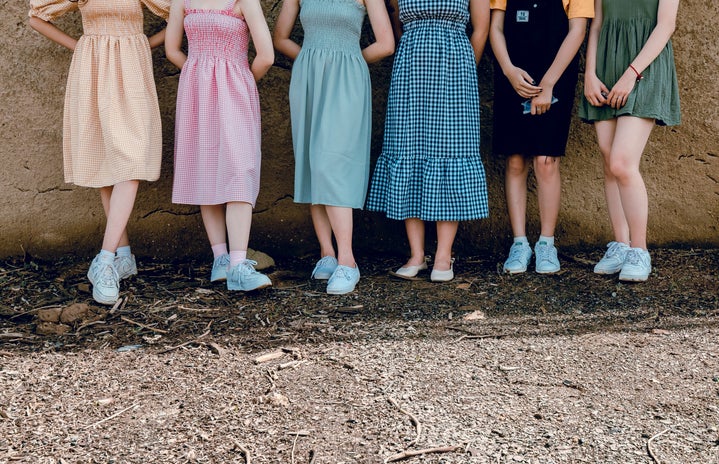In Saint Frances, we join protagonist Bridget (played by Kelly O’Sullivan, who also wrote the screenplay) as two major events in her life collide in one summer. The first is her choice to have an abortion, after an accidental pregnancy with her younger partner Jace (Max Lipchitz), and the second is her being hired as a nanny to the turbulent and yet adorable Frances (played wonderfully by Ramona Edith Williams) – despite Bridget hating kids.
One of my greatest takeaways from this film is the incredibly refreshing way in which women are written: it’s a predominantly female cast, and every single character is beautifully developed and feel so real. Bridget is suffering from a feeling of stasis in her life, as others around her appear to be doing great things with their careers and families, whilst she is a waitress-turned-nanny at 34. Her own mother, despite putting pressure on her to have children, reveals in one powerful scene that she used to fantasise about smashing her young daughter’s head against the wall, (despite sounding shocking, she says: ‘it’s the truth, and women should talk about it more’).
Similarly, although seeming to bask in suburban wealth, Frances’s mothers also face their own issues. Maya, (played by Charin Alvarez in the standout performance for me) suffers with postnatal depression and the aftermath of childbirth and struggles to balance looking after a whirlwind of a young daughter, and a new-born baby, full time. Her wife Annie is a lawyer, who is absent for large sections of the film, but eventually reveals in a monologue beautifully performed by Lily Mojekwu, the strain that choosing to work away from her family in a high-pressure job has taken on her.
And the most impressive part is that with all these issues going on, at no point does the film look to score any particular messages – it simply says: this is real life, shown for what it is. And that’s an incredibly difficult thing to carry off. Saint Frances presents issues tied in with menstruation and abortions in the least taboo fashion that I have ever seen on screen – there are frequent shots of menstrual blood on sheets and maxi pads, as Bridget attempts to come to terms with the physical strain that complications with the abortion have had on her body. It was so refreshing to see this normalised in a film available on such a widespread platform as Netflix!
The direction from O’Sullivan’s real-life partner, Alex Thompson, compliments the screenplay beautifully – I particularly loved the long, sweeping wide shots of Bridget and Frances strolling down the pavement, giving the impression of witnessing a real moment between the two. The only scene I felt slightly on the nose was a moment in which Maya is confronted by another mum in the park for publicly breastfeeding. Although it raises important points and also highlights that much of this shaming can come from other women, I felt it to be particularly didactic in a way that the rest of the film managed to avoid.
That being said, Saint Frances is funny, sad and uplifting all in equal measure. Although Bridget’s adventures with Frances start to reveal possible directions for the future, there is no great lightbulb moment at the film’s closing, which I loved. It’s a poignant reminder that ultimately, no one has things figured out, and that’s okay.
You can check out Saint Frances on Netflix.


